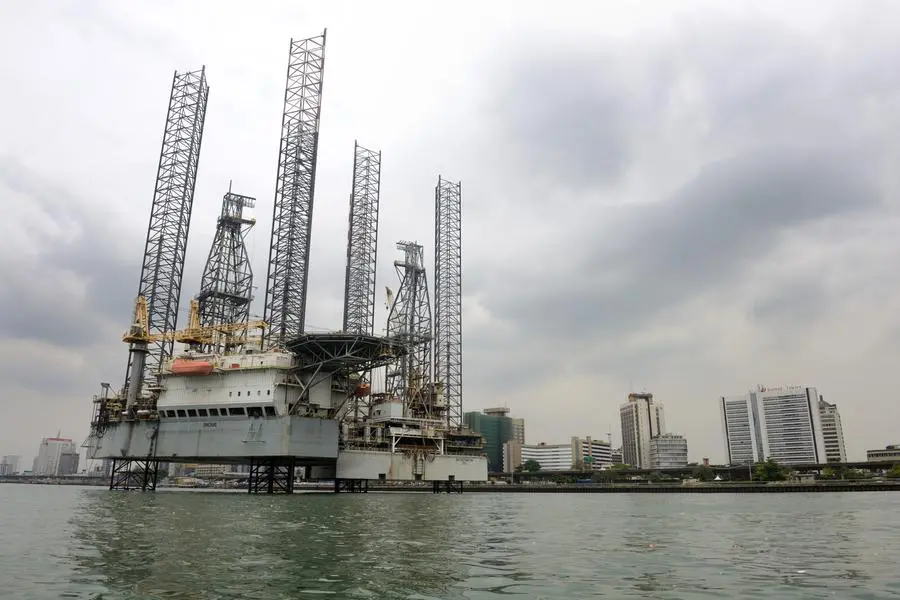PHOTO
If the 2020 oil and gas industry report released recently by the Nigeria Extractive Industries Transparency Initiative (NEITI) illustrates anything, it is the fact that the Nigerian government is not ready to enforce tax laws.
According to the report, the indebtedness of 51 oil companies to the Federal Government in 2020 alone was over $3bln (N1.32trln). During the public presentation of the report in Abuja, the Executive Secretary, NEITI, Dr. Orji Ogbonnaya-Orji, explained that the liabilities of the oil companies to the federation by December 31, 2020 was $3bln (N1.32trln) or $3.17bln compared to the over $6bln (N2.6trln) owed in 2019. There is certainly nothing to celebrate here, even if the report indicated that the number of defaulting companies dropped from 77 in 2019 to 51 in 2020.
As the NEITI boss noted, the debts consisted of collectable revenues that were due to the federation via the defunct Department of Petroleum Resources (DPR) and the Federal Inland Revenue Service (FIRS). The revenue streams that accounted for the liabilities included royalty oil, royalty gas, concession rentals, petroleum profit tax, company income tax, education tax, value-added tax and withholding tax, among others.
He said: “The public disclosure of companies’ liabilities to the federation by NEITI is in line with its national mandate and in fulfillment of its obligation as a member of the global Extractive Industries Transparency Initiative, and not in any way against the companies.” But there is no possible way we could accept NEITI’s rather diffident approach to the oil companies’ debt situation.
It is true, as the NEITI boss argued, that the oil companies operating in Nigeria are the backbone of the industry and that without them, there would be no industry, no investments and no revenues to remit. But the fact is that they are not running a charity; they are businesses established to make profit, and they are bound by the extant laws. That being the case, we are not amused by NEITI drawing their attention to their obligations to remit all revenues due to the government, “especially at this time that government is in dire need of revenues to rebuild the nation’s infrastructure and improve the country’s investment climate.” Even if the country’s economy was buoyant, it would still be patently criminal for the companies to refuse to pay tax. In serious climes such companies would be sanctioned faster than it would take them to explain away their tax evasion.
In a passionate appeal, the NEITI executive secretary noted that it was important that the process of recovering the “humongous sum be set on a course to support the government in this period of dwindling revenue.” The agency, therefore, appealed to the companies to ensure that they remitted the various outstanding sums against them before the conclusion of the 2020 NEITI audit cycle to the relevant government agencies responsible for the collection and remittances of such revenue. In our view, however, the fact that NEITI is expecting that the companies “live up to their obligations as regards payment of taxes, royalties and levies to the federation, as they do in other jurisdictions of their operations” indeed touches on the core issue at hand: the fact that no one takes Nigeria seriously. And that is precisely because of the absolute farce that is government in Nigeria.
It is instructive that NEITI’s revelation is coming at a time when the country’s borrowing rate is gradually approaching N50 trillion, and when organisations like the International Monetary Fund (IMF) have warned that increasing levels of domestic government borrowing from banks and other emerging markets could threaten its financial stability. According to the IMF’s April 2022 Global Financial Stability Report, the average ratio of public debt to the Gross Domestic Product (GDP), a key measure of a country’s fiscal health, rose to a record 67 percent in emerging market countries last year. Sadly, while IMF and other agencies are expressing concerns about a potential “doom loop” for Nigeria and other struggling economies, the Federal Government keeps globe-trotting on a borrowing binge while ignoring revenue streams at home. Naturally, a period of challenges such as Nigeria experiences on a daily basis should offer an opportunity to harness all that the country has to resolve its problems. But the government, with its fixation on foreign loans, is not doing that. Pray, is it easier to obtain foreign loans than to recover local debts?
Economic management is about achieving results. The government must put on its thinking cap and see governance as a serious business in which global practices are key. It should understand how to manage resources to attain profitability and self-sufficiency. But it won’t, and that is where the problem lies. No one takes Nigeria seriously because its political leaders don’t take their own country seriously. They do not even take themselves seriously. Regulatory agencies behave like the captives of economic criminals and in previous editorials, we had called them captured regulators. To think that the government won’t enforce its own laws to make money, but prefers to go begging for loans at the slightest opportunity! It is clear that unless they are taken down at the polls or via impeachment, the present generation of politicians will take Nigeria down soonest.
Copyright © 2022 Nigerian Tribune Provided by SyndiGate Media Inc. (Syndigate.info).




















